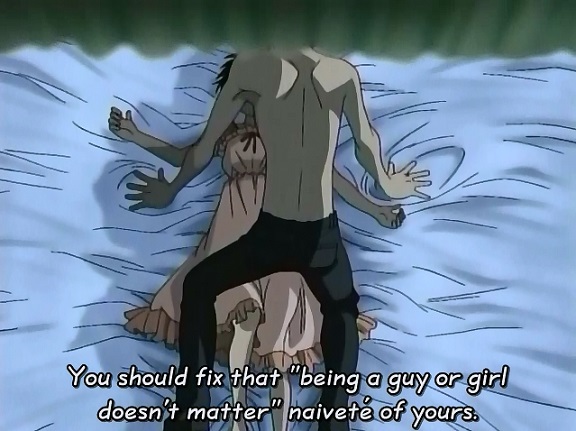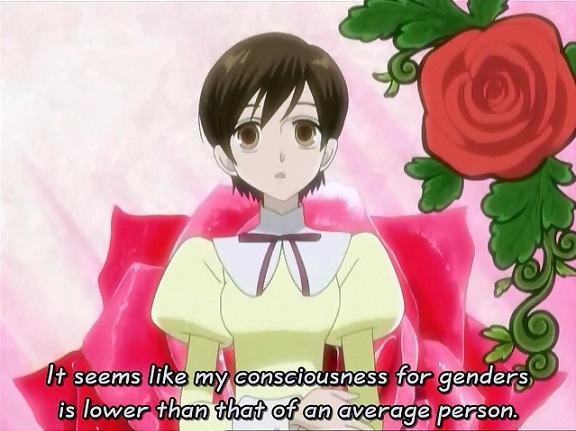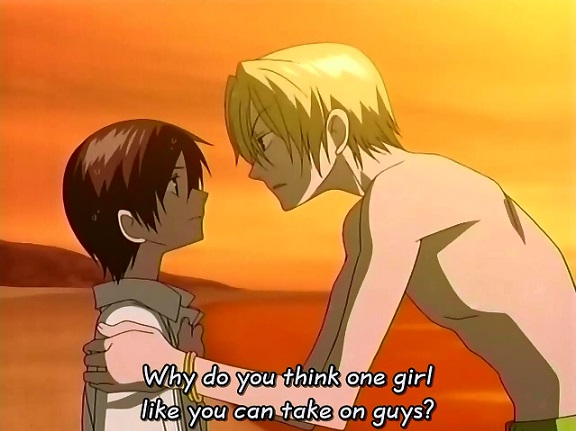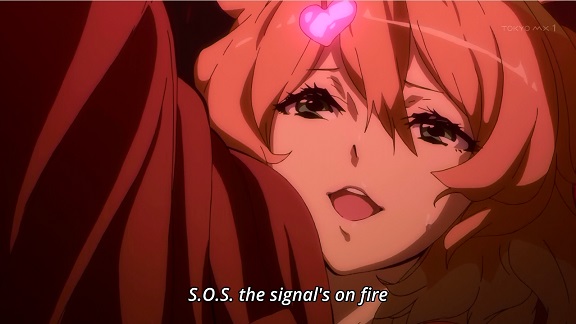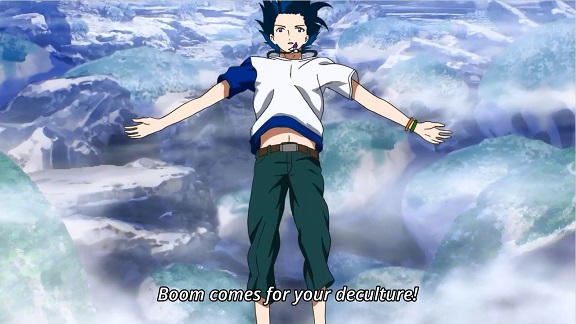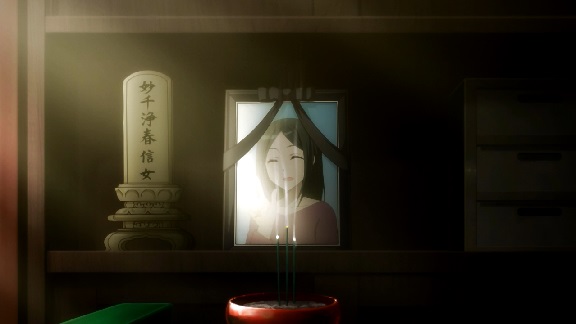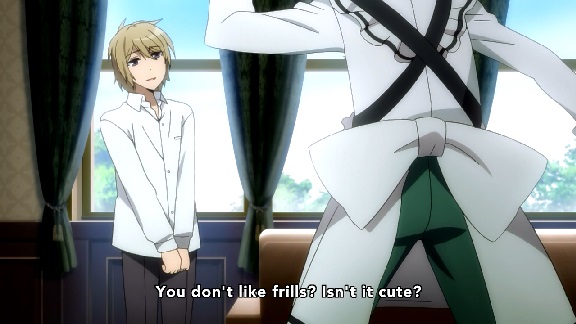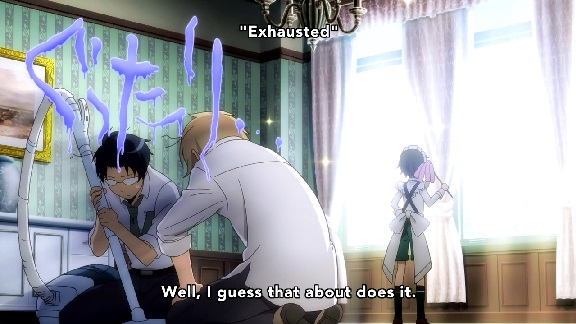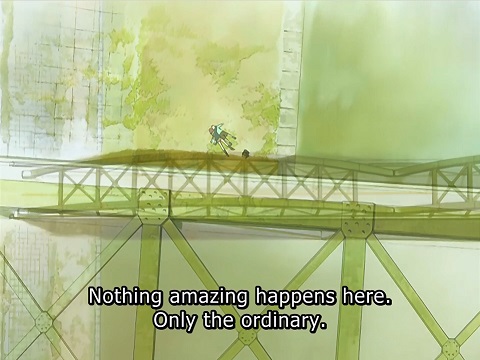
Obviously. It likes to pretend it isn’t by being all arty and deliberately incoherent, using pretentious dialogue and weird style shifts, but that trick doesn’t work anymore since everybody has seen Bakamonogatari by now. If you look at the story properly without being distracted by the trickery, what remains? A rather ordinary story of a boy at the cusp of adolescence falling in love with and being pursued by a trio of girls who each have their own reasons to involve themselves with him, in the end not ending up with any of them. A boy, Naota Nandaba, who lives in a town where nothing happens without goal or purpose, who is about to be dragged into strange adventures before he can get back to his normal life.
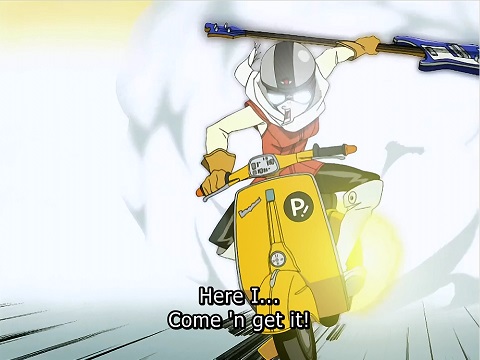
And it all starts when she comes to town, the strange and frankly terrifying alien girl riding a Vespa and wielding a guitar. The catalysor; every harem title has one, the one who sets the plot in motion, drives the hero from his cozy everyday life, brings chaos into order, the one being chased while the other haremettes try and catch up. Haruko Haruhara is the energetic meddling kind, unleashing Naota’s inner powers by bashing him in the head with her guitar. Older, unconventional and sexually aggressive, she’s the manic pixie dream girl.
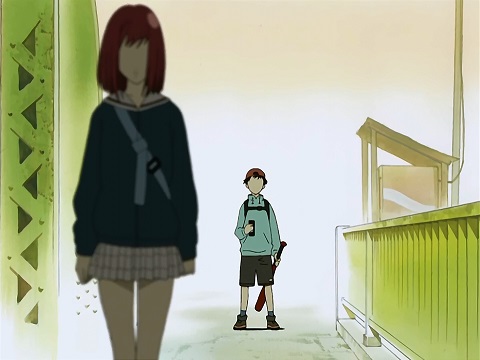
Meanwhile, pity the poor childhood friend, Mamimi Samejima, who has been hanging around with and taking care of him long before Haruko came around. Despite her again being older and a high school girl while Naoto is still in middle school, she hangs around him so much his friends call her his wife. She has no chance. She’s also an outcast, ditching school and being bullied, perhaps why she likes to mess around with Naoto, forcing her affections on him; not that he seems to mind too much.
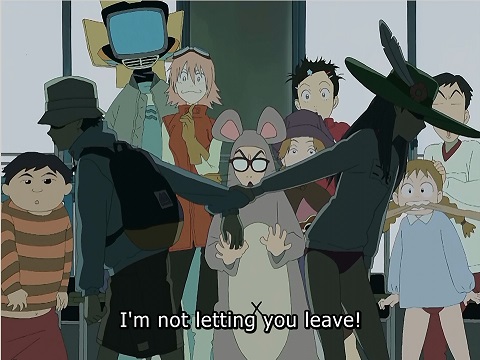
And finally there’s the class rep, Eri Ninamori, daughter of the mayor, who also has her eye on Naoto, though not to the point of molestation like the other two. She’s the one that has the most straightforward crush on him, a classic tsundere type from before it equalled continuous physical assaults. Eri is the one with the least screen time, but also the one who “wins”, remaining behind while the other two leave town. She deserves to win, because she’s the one who uses Naoto the least. While she does have an ulterior motive in letting him play the lead next to her in the school play — an attempt to get both her parents to come and see her as they’re embroiled in divorce — she also seems to like him for himself. Haruko only wants to use his powers to free the pirate king Atomsk while Mamimi used to be the girlfriend of Naoto’s older brother, who left for America to play baseball and is using Naoto as a substitute.
An ironic sort of harem series then, with Naoto not being pursued for himself but as a stand-in for somebody or something else and Naoto himself not being all that interested in love or girls anyway, more tolerating than happy about his circumstances. but a harem series nonetheless.
